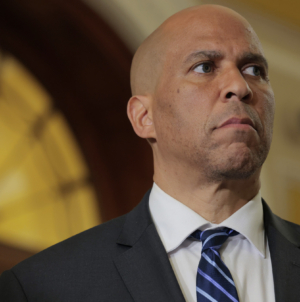-
MAGA Accuses Democratic Senator Cory Booker of Doing ‘Nazi Salute’ - 5 mins ago
-
Multiple officers down in Baldwin Park - 14 mins ago
-
‘TACO’ Is the Secret to Trump’s Resilience - 28 mins ago
-
Timberwolves’ Anthony Edwards Draws Epic Comparison to Dwyane Wade - 40 mins ago
-
Trump to Withdraw Musk’s Ally as Nominee for Top NASA Job - about 1 hour ago
-
How to Buy Indiana Pacers NBA Finals Merchandise: Conference Champions Hats, T-Shirts, Gear - about 1 hour ago
-
Rihanna’s Father Dies, Barbadian PM Says: ‘Spirit of Our Nation’ - 2 hours ago
-
M.I.T. Class President Barred From Graduation Ceremony After Pro-Palestinian Speech - 2 hours ago
-
Wayfarers Chapel may have a new site in Rancho Palos Verdes - 2 hours ago
-
Bulls Must Make Major Decision on Josh Giddey Contract - 2 hours ago
The End of the South Florida Dream
The Lake Clarke Gardens condominiums in Lake Worth, Florida, are among many places across the Sunshine State selling Americans the much-coveted dream of retiring in a place in the sun.
With 855 units in 24 separate residential buildings only a few miles from the ocean and featuring a clubhouse, swimming pools and many more amenities throughout its 55 acres, this 55-plus community is someone’s idea of the so-called Florida paradise.
Back in 2017, Diego C.’s mother bought into this dream, purchasing a condo unit in Lake Clarke Gardens, where she planned to one day spend her retirement. Until that day, she would rent it to “snowbirds”—people who vacation in warmer places during winter.
But last year, her dream was suddenly shuttered when new building regulations came into effect requiring aging condos in Florida to undergo regular inspections and owners to have enough funds to shoulder necessary repairs and maintenance.

Photo Illustration by Newsweek
Rising homeowners association (HOA) fees forced her to put her condo up for sale—at the same time many of her neighbors found themselves in the very same situation.
“She has put the unit for sale but no one has any interest in seeing it since there are 70-plus units for sale in the complex,” Diego C. told Newsweek. “The only units getting sold here are the ones that desperate owners are selling for pennies.”
A similar phenomenon is taking place across all of South Florida, where a majority of the state’s aging condos are concentrated. Over the past few months, condo listings have shot up in the region as owners fear being unable to meet rising fees, flooding the market with inventory that is struggling to find interested buyers.
Why It Matters
Buying a place on the South Florida coast has been a dream for millions of American retirees over the past decades and a main driver of in-migration to the state.
But now, a combination of factors—including a slowdown of the Florida housing market, rising HOA fees and higher property insurance premiums—is turning this dream into a nightmare for many Sunshine State homeowners.
Many are being forced to sell their homes and relocate, whether within or outside the state, while local lawmakers warn against a rise in homelessness among seniors in South Florida.
A Controversial New Law
On the night of June 24, 2021, the Champlain Towers South condo in Surfside, Florida, partially collapsed, killing 98 people and injuring another 11. Investigations later found that the tragedy could be linked to long-term structural issues that had not been addressed through the years, as the building’s financial reserves were critically underfunded.
In response to the Surfside collapse, the Florida legislature passed new condominium legislation requiring structural integrity reserve studies (SIRS) and milestone inspections for condos three stories high or taller, as well as required reserves that must be fully funded.
“The legislation, now in effect, removed the ability of condo associations to vote to waive or reduce funding of reserves or use reserves for other purposes, and requires that condo association budgets fully fund reserves for those components of the condo specified in the structural integrity reserve study including the roof, structure, plumbing, electrical systems, waterproofing, load-bearing walls, floors, foundations, fireproofing systems and other components,” Jeffrey Margolis, real estate attorney with the Berger Singerman law firm in Miami, told Newsweek.
Condo owners are also responsible for the costs and expenses relating to the SIRS, which calls for a licensed engineer to perform the required inspections. In addition, requirements relating to life safety systems must be completed by 2027, also increasing the operating costs of condominium associations which will be passed on to owners through increased assessments.
The SIRS are to be completed every 10 years after the creation of the condo, while milestone inspections are required for buildings that are three or more stories in heights and must be completed by December 31 of the year in which the building reaches 30 years of age and every 10 years thereafter.
The first key deadline for many buildings in South Florida was December 31, 2024. By that same day, condo associations needed to share the result of the inspection and prove they had the necessary funds to conduct the required repair and maintenance works.
However, the Miami Association of Realtors revealed in a report released last month that the majority of South Florida condo associations across the three counties failed to complete SIRS as required by the state legislature.
The percentage of condo associations of at least three stories who had complied with new requirements stood at 44 percent in Miami-Dade County, 41 percent in Broward County and 28 percent in Palm Beach County.
“Those buildings that didn’t set aside funds for repairs or replacements are now struggling to keep up with the new inspection and funding rules,” Robert Smith, region president at property management company FirstService Residential Florida, told Newsweek. “Our teams are seeing every day how the higher association dues and special assessments are impacting condo sales in South Florida.”
While some owners hoping to sell in advance of special assessments have put their properties on the market, either because they don’t want to pay higher fees or because they can’t, there is very little interest for such properties in the current market.
“More inventory and slowing demand impact pricing. Uncertainty about future financial responsibilities for owners is making it harder to sell condos, especially in older buildings that may need more extensive repairs,” Smith said. “Sales are down significantly and prices have slipped a bit.”
Devastating Retirement Communities
According to Diego C., his mother was expecting to retire in Lake Worth within a few years. However, he said, “With this new law, all her dreams have been trumped and she is not sure what is for her to do once she retires, as her Social Security benefits will not help her cover the new expenses.”
For the worried son, it feels “arbitrary and unconscious” that these laws were passed without thinking of the consequences for communities where retirees live or plan to retire in. The regulations have had a “devastating impact” on his mother’s financial stability, Diego C. said.
“Even while working, she can no longer afford the tripled monthly payments, forcing me to step in and provide financial assistance to prevent her from losing her home,” he said. “This creates a significant burden not only for her but also for me, as I am now essentially responsible for helping cover these costs.”
The situation is further complicated by the fact that his mother’s condo unit has now been on the market for over a year without going under contract.
“The inability to sell or rent the unit long-term due to the restrictive rental policies in Lake Clarke leaves her with limited options,” Diego C. said. “This situation highlights the urgent need for the state legislators to reconsider this law and find solutions that address the financial strain on homeowners and protect their investments.”
His mother’s situation is far from unique in South Florida.
“Older buildings, especially those with a lot of seniors on fixed incomes, are considering dissolving their associations and selling to developers, who will build according to current standards and to meet the demand for luxury condos,” Smith explained.
“This is a tricky situation for owners, especially since a unanimous vote isn’t required to dissolve the association. Some might end up priced out of the Florida condo market,” he added. “Owners need to get involved in these conversations in their communities and stay informed and engaged with their boards and fellow residents.”
While a buyout offer from a developer can offer a struggling condo owner a “lifeline,” Margolis said, “there is no good option for condo unit owners who are faced with mounting assessments as a result of the new laws because ultimately, they face losing their homes.”
Others Factors at Play
High property insurance premiums are also playing a role in South Florida’s condo owners’ decision to sell and relocate.
The Sunshine State went through a property insurance crisis over the past few years, as a combination of widespread fraud, unnecessary litigation and the growing risk of more frequent and more severe extreme weather events drove insurers to cut coverage or withdraw from Florida entirely.
While the market has since then stabilized, Florida remains the most expensive state in the union for condo insurance, with owners paying an average $1,130 a year, or about $94 a month, according to NerdWallet. By comparison, the national average is $455 per year, or about $38 per month.
In South Florida, a region which is particularly vulnerable to natural disasters, the situation is fragile.
“Because of global warming, Florida is facing a lot more storms that are stronger and more severe,” Oscar Seikaly, CEO and chairman of NSI Insurance Group, told Newsweek.
“Today, when you get a hurricane, it’s not like 20 years ago. Today the hurricane is much stronger, much more powerful and more destructive,” he added. “So insurers did the numbers and figured out that for them to price themselves correctly in the market, they need to do some adjustments—meaning they have to increase the purchase of reinsurance to all these companies that are doing business in Florida.”
Insurers then try to absorb that additional cost by increasing premiums on policyholders. Now, if Florida faces the same number of natural disasters that it has learned to expect in recent years, the market is likely to remain stable.
“What’s going to throw it sideways is another two consecutive storms that we’re not expecting to happen,” Seikaly said. “That would change the whole geography, the whole makeup of the insurance market, including how insurers are going to charge for coverage.
Painful, But Worth It
There are some condo owners who believe that the new safety regulations are necessary, even if painful.
Mark A. Jones owns a condo in Panama City Beach. His building, dating back to 1981 and comprising 72 units, is one of five on the property and the closest to the water. Last year, Jones’ building was inspected as required and the necessary repairs were completed.
The engineering firm found a few issues in the building, Jones told Newsweek, but most were not structural and the total cost for the building repairs was $1.5 million, with each unit being asked to pay about $20,000.
“Paying that money hurt, but knowing our building is in good shape gives us all peace of mind,” Jones said. “I’m sure that many people hate the law because it can certainly be expensive to the owners. And owning waterfront property was already expensive before the new law.”
But, Jones said, the Surfside collapse showed that “when building owners and managers shirk their responsibilities, people can die.”
His building now looks like new, Jones said, and the owners and renters can feel safe knowing the building is sound. “Thankfully, when our building was constructed all those years ago, it was done correctly.”
Margolis, the real estate attorney, said that while the legislation was “well-intentioned” and intended to address legitimate safety concerns, improve building safety and protect residents from harm, it “has had the unintended consequence of making condominium living more expensive with owners now facing unanticipated increased financial burdens.”
Increased assessments will be required to comply with the inspection and structural integrity reserve study requirements, he explained, and an additional assessment will be required to perform upgrades, restoration and repairs required as a result of such inspections and studies.
“Although the intention of the new laws was to bolster the financial stability, structural integrity, safety and longevity of condominiums, all condos will be facing challenges created by the new laws and condominium owners will be faced with increased financial burdens over the short term,” Margolis said.
A Possible Step Back
Both residents and lawmakers in Florida have called for changes to be made to the new legislation to help struggling condo owners.
Governor Ron DeSantis said last year: “Are we just going to sit by and let people be forced out of their units and act like we shouldn’t do anything? I mean, I just think that we have the responsibility to act.”
There has been a lot of discussion around how the Florida legislature can help condos with the current transition, and the new legislative session has kicked off with a few bills seeking to provide clarity and uniformity to reserve requirements, funding, inspections and repairs.
“At this stage, the bills are vastly different,” Smith, of FirstService Residential Florida, said. “Some call for prioritizing more critical structural needs while allocating more time to fund and make repairs that aren’t classified as critical. Others call for an increase in homestead property tax exemption or offer grants to senior citizens in a lower income bracket.
“There’s even talk about eliminating property taxes or at least slowing down the rate they can increase each year.”
It’s unclear which of the many bills passed by lawmakers in Tallahassee will be approved and what impact it would have on the condo market in South Florida. But one thing seems clear: it will take a dramatic change to restore residents’ faith in the Sunshine State’s retirement dream.
Source link




















